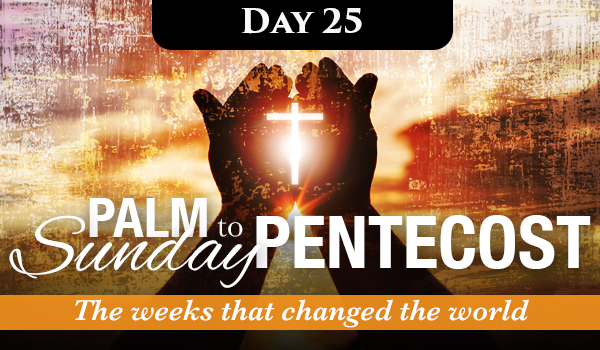When they saw the courage of Peter and John and realized that they were unschooled, ordinary men, they were astonished.
Acts 4:13
Over the next two days and as we begin to wind down this study, we’re going to look at Peter and John’s early run-ins with the Sanhedrin on two occasions (Acts 4 and 5). Both of these episodes contain key truths for us as believers as we carry on the task of fulfilling the Great Commission. So it’s worth studying them separately.
The number of believers had grown to around five thousand due to the word spreading about Jesus’ resurrection and the testimonies of the disciples. This, of course, made the religious leaders “greatly disturbed” (4:2). Peter had also just healed a well-known crippled beggar.
So the temple guard arrested them to be brought before the Sanhedrin the next day. Through the power of the Holy Spirit (this is important), Peter gave an impassioned and courageous speech before them. He proclaimed that the Messiah they had rejected had the power to conquer death and also bring healing to the lame and sick.
The leaders were in a conundrum. Living proof that a miracle had taken place stood before them; the crippled man was “walking and jumping, and praising God” (3:8). And this took place at the hands of “unschooled, ordinary men” who could heal and speak with clear conviction.
All they could do without looking bad was warn Peter and John not to share about Jesus, and wait for another opportunity to bring an end to this interference into their religious status quo. We’ll look at this occasion in Acts 5 tomorrow.
For today, we can find great comfort and encouragement in the fact that God uses unschooled, ordinary men and women to do great things for Him. Unfortunately, our society and religious institutions are often like the religious leaders of Jesus’ day. They seem to value official education over a passionate conviction coupled with a bold witness.
Certainly there are many benefits to formal biblical training, such as what takes place in a seminary, for example. The Apostle Paul is a great example of having a firm foot in both worlds, since he was a member of the religious establishment, a Pharisee, in fact (Acts 23:6). But, as we’ve seen today, the disciples were unschooled, ordinary men, and yet God used them to lay the foundations for the spread of the Gospel to the world. Their strength was not in their ability, but their availability.
The same is true for us. God desires to use every believer for His glory. And yet, to a certain degree, we all hold back a large or small piece of ourselves for our own pursuits. Today, I encourage you to look at your own life and lay it down afresh. You will not get to heaven one day and wish you’d done more for yourself and less for Him!
